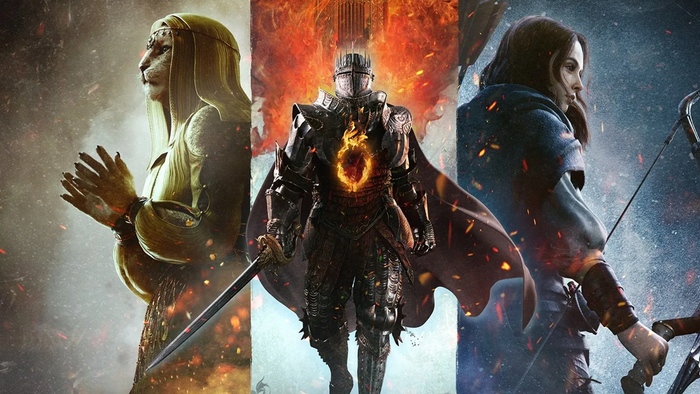
Featured Blog | This community-written post highlights the best of what the game industry has to offer. Read more like it on the Game Developer Blogs.
A relentless focus on innovation means we can lose the ability to express ourselves through certain game genres. We need to get over innovation and start enjoying games in their own rights.

I have now finished Broken Age Act 1. Don't worry, I won't spoil it for you, except to say that the 'ending' is pretty great, and that if you have even a passing interest in adventure games you should definitely consider playing it.
It would seem that most of the gaming press agrees with me. With one caveat. From Edge: '...feeling its way to a comfortable mid-point between the desires of adventure-game fans and its own motivation to move the genre forward – even if only by a small increment.'
From Eurogamer: '...fans will be forgiven for expecting something a little more chewy, a little more experimental, from a developer who made his name by turning adventure games upside down.'
From Gameplanet: 'But it’s over all too quickly, without enough challenges to satisfy, or enough innovations to drive the genre forward.'
Emphasis mine. Concerns about length and difficulty aside, people's primary gripe with Broken Age seems to be that is isn't progressive enough. Which seems to me to be a strange criticism to level at a game that was conceived as a love letter to the classic point-and-click adventure genre, that made millions on a promise that it quite specifically wasn't going to be progressive.
 Antharion - just one of many games pitched as 'old school' which has sailed past its funding goal.
Antharion - just one of many games pitched as 'old school' which has sailed past its funding goal.
There's a vein of criticism at the moment that suggests that Kickstarter has become a platform for little more than gaming nostalgia trips. That developers can greatly increase their chance of reaching funding by promising a return to some sort of 'golden age', by resurrecting a 'dead' genre, by featuring some lovely 16-bit pixel art or nostalgia-stirring chip-tune music.
This article at Rock Paper Shotgun sums up the situation rather well. While I agree with the author's view of Kickstarter development right now - I myself am guilty of chucking a fair bit of money at projects that lead with the term 'old school' - I don't necessarily agree that this is somehow a bad thing, a 'peril' for the games industry.
Firstly, the fact that these projects garner so much funding so quickly implies there's a hungry audience for these non-progressive games, so from a purely business point of view, who are we to argue that these projects are somehow of less value simple because they aren't innovative?
Secondly, I take issue with the idea of innovation, or at least the idea that innovation is inherently good and something that all games developers should aspire to. Innovation is a lovely buzzword, one that over time has been rather muddied in meaning and come to represent some ideal of progression that the entire games medium ought to be striving towards.
Now don't get me wrong, innovation is great. Innovation is something that any artistic medium requires to remain culturally valid. However, not every piece of work within a medium can be innovative, nor should it be. Progressiveness is not the be-all-and-end-all of an art form.
 The Monkey Island HD re-release certainly isn't innovative, but few would argue that it isn't still damn good fun.
The Monkey Island HD re-release certainly isn't innovative, but few would argue that it isn't still damn good fun.
If every novel was a work of progressive fiction, then people sitting poolside at holiday resorts would look really upset. And Dan Brown would be broke. If every movie was tying to break new cinematic ground, cinemas would be pretty sparsely populated around summer time. And Michael Bay would be unemployed. Hey, it's swings and roundabouts, stick with me here.
My argument is that there is plenty of room for games, hell, for entire genres, that exist without innovating at all. That innovation for innovation's sake is unnecessary. That 'new' does not always have to mean different, or even really all that new at all.
The games industry has always been obsessed with progression. I think that's a technology thing - games are tied to the technology that runs them, and technology is a rampantly progressive industry. As technology gets more powerful, the scope for bigger, deeper, more innovative games increases.
Genres get left behind. The text adventure died because, hell, who wants to read a load of boring old words when we can render graphics now? Then the graphical adventure was vanquished by the big tech push into 3D - who needs pixel art backgrounds when we can manipulate polygons? For decades, 'newness' has been synonymous with 'greatness'.
 The text adventure is a supposedly 'dead' genre that is still thriving today.
The text adventure is a supposedly 'dead' genre that is still thriving today.
But just because technology allows us to create exciting new avenues for games, does that render the genres that came before irrelevant? Because we can render full-colour graphics, does that mean we've said everything it's possible to say through the medium of the text adventure? The burgeoning community building up around Twine adventure games would suggest not.
Clearly people still want to play games that exist in the same form they did in the past - they're not Kickstarting these things out of sheer ignorance, I assure you. Why should we resent them for doing so?
We're finally at a point where technology exists across a broad enough spectrum, and is so widely available, that you no longer need the most cutting-edge equipment to play games. And it follows that the games people are playing now don't have to be defined by the cutting edge of innovation either.
What I love about the current state of gaming is that we can be wildly innovative, we can experiment with wearable technology games and actual virtual reality, then we can turn around and pick up a point-and-click adventure game that plays like it was made in 1992. If all of these experiences are enjoyable, why should one be considered less worthwhile on the grounds of not being progressive enough?
 Cthulu Saves The World. Not innovative. Still great.
Cthulu Saves The World. Not innovative. Still great.
Innovation is great. Innovation is important. I love playing innovative games that break new ground. That's half the reason I play games, after all; to see what new and exciting places they can take me next. But I also play games to relax, to have fun, to enjoy a story, and innovation is completely irrelevant to those particular experiences.
Innovation is not the sole reason for games to exist. It is possible for a game to be great without being innovative. 'Greatness' and 'newness' are not synonymous. In short, we need to get over innovation, and start enjoying games for what they bring to table in their own right.
Tom Battey is an author and person who sometimes writes about videogames. He writes at tombattey.com and does the Twitter thing @tombattey.
Read more about:
Featured BlogsAbout the Author(s)
You May Also Like









